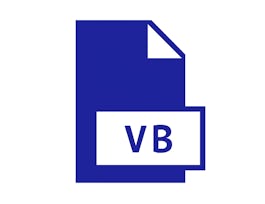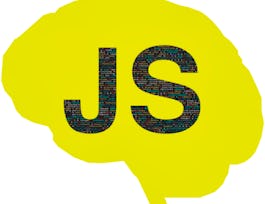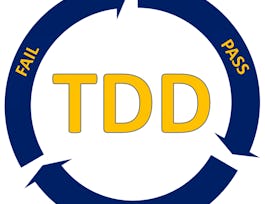This course is the third course in a series that aims to prepare you for a role working as a programmer. In this course, you will be introduced to the four main concepts in programming: Advanced String Operations and Dates, Modeling Classes, Development of Classes and Collections. Labs will allow the students to apply the material in the lectures in simple computer programs designed to re-enforce the material in the lesson. Learners will need to have a local machine with any one of the following operating systems; Windows 7 SP1 or higher, macOS 10.1.13 or higher, or almost any version of Linux from the last several years. The learner will either need to download the free community edition of Visual Studio or the open source .NET Core installation.


Visual Basic Programming: Classes and Collections
This course is part of Introduction to Computer Programming with Visual Basic Specialization
Taught in English
Some content may not be translated

Instructor: Aspen Olmsted
Included with 
Course
(12 reviews)
Recommended experience
What you'll learn
Develop computer programs that utilize classes and objects to solve business and mathematical problems
Skills you'll gain
Details to know

Add to your LinkedIn profile
16 quizzes
Course
(12 reviews)
Recommended experience
See how employees at top companies are mastering in-demand skills

Build your subject-matter expertise
- Learn new concepts from industry experts
- Gain a foundational understanding of a subject or tool
- Develop job-relevant skills with hands-on projects
- Earn a shareable career certificate


Earn a career certificate
Add this credential to your LinkedIn profile, resume, or CV
Share it on social media and in your performance review

There are 4 modules in this course
In this module, we continue our adventure coding! We will build on our skills by working with dates and time values. We will expand our abilities by looking at how to work with advance string operations. Lastly we will explore was to format values for output.
What's included
5 videos3 readings4 quizzes1 programming assignment1 discussion prompt
In this module, we continue building out our programming toolset by adding the ability to abstract code and data. We begin to look at how classes are used to store both data and the operations on the data. In this module, we will not program, but we will model the classes in the Unified Modeling Language (UML). UML is a general-purpose, developmental, modeling language in the field of software engineering that is intended to provide a standard way to visualize the design of a system
What's included
3 videos3 readings4 quizzes1 discussion prompt
In this module, we continue looking at abstraction utilizing classes. We will implement parts of the models we developed in the previous module. In this module we will implement the individual classes and one-to-one has-a relationships. In future modules we will implement the one-to-many has-a relationships and is-a relationships.
What's included
4 videos3 readings4 quizzes1 programming assignment1 discussion prompt
In this module, we add the ability to store multiple values in a single variable. We look at both low-level arrays and a few higher-level data structures used to store multiple variables. We will utilize the collections to implement classes with one-to-many has-a relationships we discussed in our previous modeling module.
What's included
4 videos3 readings4 quizzes1 programming assignment1 discussion prompt
Instructor

Offered by
Recommended if you're interested in Software Development

LearnQuest

University of Glasgow
Why people choose Coursera for their career




New to Software Development? Start here.

Open new doors with Coursera Plus
Unlimited access to 7,000+ world-class courses, hands-on projects, and job-ready certificate programs - all included in your subscription
Advance your career with an online degree
Earn a degree from world-class universities - 100% online
Join over 3,400 global companies that choose Coursera for Business
Upskill your employees to excel in the digital economy
Frequently asked questions
Access to lectures and assignments depends on your type of enrollment. If you take a course in audit mode, you will be able to see most course materials for free. To access graded assignments and to earn a Certificate, you will need to purchase the Certificate experience, during or after your audit. If you don't see the audit option:
The course may not offer an audit option. You can try a Free Trial instead, or apply for Financial Aid.
The course may offer 'Full Course, No Certificate' instead. This option lets you see all course materials, submit required assessments, and get a final grade. This also means that you will not be able to purchase a Certificate experience.
When you enroll in the course, you get access to all of the courses in the Specialization, and you earn a certificate when you complete the work. Your electronic Certificate will be added to your Accomplishments page - from there, you can print your Certificate or add it to your LinkedIn profile. If you only want to read and view the course content, you can audit the course for free.
If you subscribed, you get a 7-day free trial during which you can cancel at no penalty. After that, we don’t give refunds, but you can cancel your subscription at any time. See our full refund policy.



